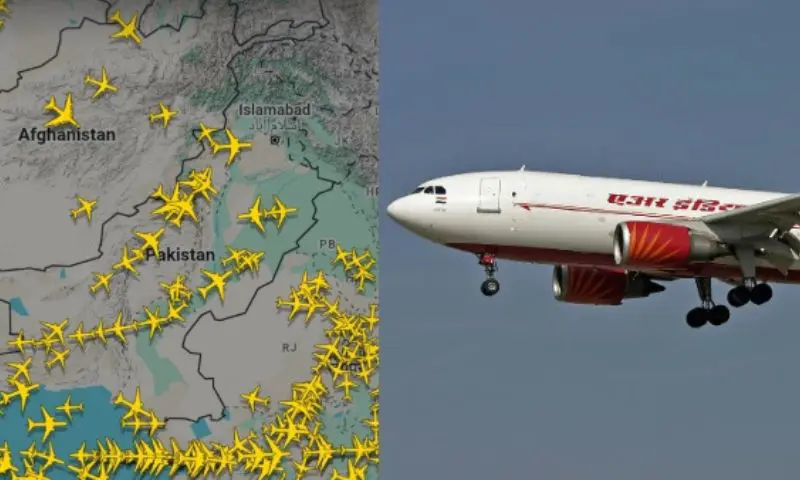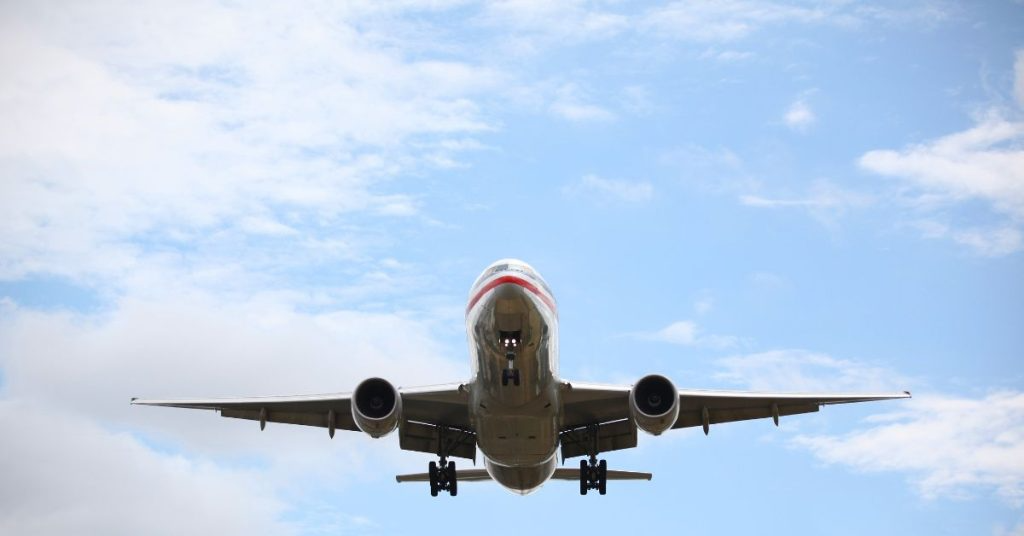
The skies above Pakistan have reopened for commercial air traffic, bringing much-needed relief to countless passengers whose travel plans were upended by the recent escalation of tensions between India and Pakistan. Following the positive news of a ceasefire, the Islamabad airport authority promptly confirmed the reopening of Pakistani airspace, effective immediately. This crucial development signifies a step towards normalcy after days of geopolitical uncertainty that had grounded flights and stranded individuals worldwide.
The Impact of Heightened Tensions on Air Travel
The preceding days saw a dangerous increase in hostilities between the two nuclear-armed nations. Deadly exchanges involving air force operations, missile launches, drone incursions, and artillery fire created a high-risk environment, compelling aviation authorities to implement stringent measures to safeguard civilian aircraft. Consequently, numerous international flights, including those operated by major UAE airlines such as Etihad Airways and Emirates, serving their busy hubs in Abu Dhabi and Dubai, faced cancellations or significant delays. The airspace closure affected not only direct flights to and from Pakistan but also broader international air routes traversing the region.
Pakistan Responds Swiftly to Ceasefire
The official announcement from Pakistan's airports authority, delivered with a sense of immediate relief, clearly stated that "All airports across the country are now available for regular flight operations." This declaration came within minutes of the ceasefire announcement, indicating a rapid and decisive response aimed at alleviating the disruptions faced by travellers and the aviation industry. Before this, a complete closure of Pakistani airspace had been in effect until noon on Sunday, further compounding the travel difficulties for many.
India's Airspace Restrictions
Adding to the complexity, India had also implemented significant air travel restrictions within its own airspace. Thirty-two airports in the northern and western parts of the country were temporarily closed, and twenty-five air route segments were suspended until May 15th. These parallel closures highlighted the widespread impact of the conflict on regional air connectivity, affecting not only direct travel between India and Pakistan but also international flights relying on these air corridors.
Stranded Passengers Find Hope
For passengers caught in the crossfire of geopolitical tensions, the news of the ceasefire and the subsequent reopening of Pakistani airspace offers a significant glimmer of hope. Many individuals, like Mohammad Ali, a resident of Jhelum in Pakistan's Punjab province, had found themselves in difficult situations. Mr. Ali, along with his family residing in Abu Dhabi, had made the tough decision to relocate to Islamabad, anticipating flight resumption and seeking safety from the shelling in their hometown. "All the houses near the river [in Jhelum] were on high-alert," he told The National. "We had to leave the hometown for safety reasons." His experience underscores the human cost of such conflicts, where ordinary citizens are forced to make extraordinary choices for their safety and well-being.
Anticipating High Demand for Flights
However, the anticipation of resumed flights is tempered by the practical realities of high demand and potential logistical challenges. Mr. Ali, reflecting on the situation, expressed concern about ticket availability. "Thousands want to leave the country. Finding tickets would be impossible," he feared. This sentiment highlights the potential for a surge in booking activity as stranded passengers rush to rebook their journeys, potentially leading to limited availability and increased fares in the short term.
Social Media Buzzes with Relief
The news of the ceasefire and airspace reopening has also been met with widespread relief on social media platforms. Numerous users have taken to various channels to express their happiness and celebrate the prospect of finally being able to resume their travel plans and reunite with loved ones. This digital outpouring of emotion underscores the significant personal impact of the flight disruptions and the collective sigh of relief that the de-escalation of tensions has brought. sefire
Etihad Airways Announces Flight Resumption
In a proactive step to address the travel disruptions, Etihad Airways, the national airline of the United Arab Emirates, issued a statement outlining its plans for the resumption of services to Pakistan. The airline announced that select flights from Abu Dhabi to key Pakistani destinations, including Islamabad, Karachi, and Lahore, would commence operations on Sunday, May 11th. Furthermore, Etihad anticipates a full restoration of its regular flight schedule to Pakistan starting on Monday, May 12th. This swift response from Etihad offers concrete hope for many stranded passengers who were booked on their flights.
Etihad Flights Affected by Airspace Closure
Before the ceasefire announcement, Etihad Airways had been forced to cancel a number of flights to and from Pakistan on Thursday due to the continued closure of Pakistani airspace. Specifically, the airline confirmed the cancellation of services EY300/EY301 between Abu Dhabi and Islamabad, EY288/EY289 between Abu Dhabi and Lahore, EY294/EY295 between Abu Dhabi and Karachi, and EY284/EY285 between Abu Dhabi and Lahore. Interestingly, flights EY296 and EY297 between Abu Dhabi and Karachi were initially scheduled to proceed as planned, subject to airspace availability, highlighting the dynamic and uncertain nature of the situation as it unfolded.
Etihad Prioritizes Safety and Monitors Situation
In its official statement, Etihad Airways emphasized the fluidity of the situation and cautioned that further changes or disruptions could still occur. The airline reiterated its commitment to closely monitoring developments in coordination with the relevant authorities, underscoring the paramount importance of the safety and well-being of its guests and crew. "The safety of our guests and crew remains our highest priority, and we regret any inconvenience caused," the statement read, acknowledging the difficulties faced by affected passengers.
Emirates Suspends Flights
Emirates, another major UAE airline, had also taken the precautionary measure of suspending all its flight operations to Pakistan until Saturday, May 10th. In a statement posted on its website prior to the ceasefire announcement, Emirates cited the "ongoing uncertainty surrounding access to the country’s airspace and airports" as the reason for the suspension. The airline expressed its apologies for any inconvenience caused to its customers and assured them that it was closely monitoring the situation and would provide operational updates on its website as they became available.
Path to Normalcy in Air Travel
The reopening of Pakistani airspace represents a crucial step towards restoring normalcy in regional air travel. However, the ripple effects of the preceding disruptions are likely to be felt for some time. Airlines will face the challenge of managing the backlog of passengers seeking to rebook flights, adjusting schedules to accommodate the pent-up demand, and working through the logistical complexities of resuming full operations. Passengers, on their part, may experience delays, higher fares, and limited availability as the system recalibrates.
Trips.pk Committed to Providing Updates
For travel platforms like Trips.pk, the immediate priority will be to provide accurate and timely information to users seeking to rebook their travel to and from Pakistan. This includes updating flight schedules, communicating any airline-specific advisories, and offering support to passengers navigating the process of rescheduling their journeys. The platform will play a vital role in connecting stranded travellers with available flights and ensuring they have access to the latest information regarding travel requirements and potential disruptions.
Geopolitical Impact on Travel Networks
The situation underscores the delicate interplay between geopolitical events and the smooth functioning of global transportation networks. Even localized conflicts can have far-reaching consequences, impacting international travel, trade, and the lives of ordinary citizens. The swift de-escalation of tensions and the subsequent reopening of airspace offer a positive example of how diplomatic efforts can lead to the alleviation of hardship and the restoration of essential services.
Travellers Urged to Remain Patient and Flexible
As airlines gradually resume their operations and passengers begin to rebook their journeys, travelers must remain patient and flexible. The initial period following the airspace reopening may be characterized by some level of congestion and potential delays as the system adjusts to the renewed flow of air traffic. Passengers are advised to stay in close contact with their airlines, monitor official announcements, and be prepared for potential changes to their itineraries.
Trips.pk Stands with Travellers
The team at Trips.PK understands the frustration and uncertainty that travel disruptions can cause. We are committed to providing our users with the most up-to-date information and support to help them navigate these challenging times. Our platform will be continuously updated with the latest flight schedules, airline advisories, and travel information related to Pakistan. We encourage users to check our website and mobile app for the most current details as they become available.
Conclusion: A Step Towards Recovery
In conclusion, the reopening of Pakistani airspace following the India-Pakistan ceasefire marks a significant and welcome development for the global travel community. It offers a ray of hope for stranded passengers and signals a move towards the restoration of normalcy in regional air travel. While the road to full operational recovery may take some time and present logistical challenges, the swift response from aviation authorities and airlines provides a positive outlook for those whose travel plans were disrupted. Trips.pk remains dedicated to supporting travelers during this transition, providing the information and resources needed to facilitate their journeys.
;More Travel News
-
 24-Jun-2021A Thailand trip is a wonderful idea
24-Jun-2021A Thailand trip is a wonderful idea -
 14-Apr-2025Umrah Entry Closed Until Further Notice in Saudi Arabia
14-Apr-2025Umrah Entry Closed Until Further Notice in Saudi Arabia -
 07-May-2025UK Issues Urgent Travel Advisory Amid Escalating Pakistan-India Tensions
07-May-2025UK Issues Urgent Travel Advisory Amid Escalating Pakistan-India Tensions -
 10-Jan-2022Travel Agency Business in Pakistan 2022
10-Jan-2022Travel Agency Business in Pakistan 2022 -
 10-Oct-2025Best Umrah Packages – Compare Prices & Hotels for Your Sacred Journey
10-Oct-2025Best Umrah Packages – Compare Prices & Hotels for Your Sacred Journey -
 14-Sep-2025Pakistan Moves to Crack Down on Misuse of Umrah Visas; New Rules to Ensure Only Genuine Pilgrims Travel
14-Sep-2025Pakistan Moves to Crack Down on Misuse of Umrah Visas; New Rules to Ensure Only Genuine Pilgrims Travel -
 12-Sep-2025Winter 2025 Family Umrah Packages at Discounted Rates
12-Sep-2025Winter 2025 Family Umrah Packages at Discounted Rates -
 28-Apr-2020How To Get Pakistan Visa For Foreign Citizens
28-Apr-2020How To Get Pakistan Visa For Foreign Citizens -
 25-Nov-2020Which Company Provides The Best Tours in Pakistan
25-Nov-2020Which Company Provides The Best Tours in Pakistan -
 08-Jan-2026PIA Resumes Lahore to London Flights After Six Years
08-Jan-2026PIA Resumes Lahore to London Flights After Six Years -
 10-Feb-2023Hajj Registrations for 58 Countries
10-Feb-2023Hajj Registrations for 58 Countries -
 17-Jan-2025Hajj 2025 Training Schedule Has Been Announced by the Ministry of Religious Affairs
17-Jan-2025Hajj 2025 Training Schedule Has Been Announced by the Ministry of Religious Affairs
